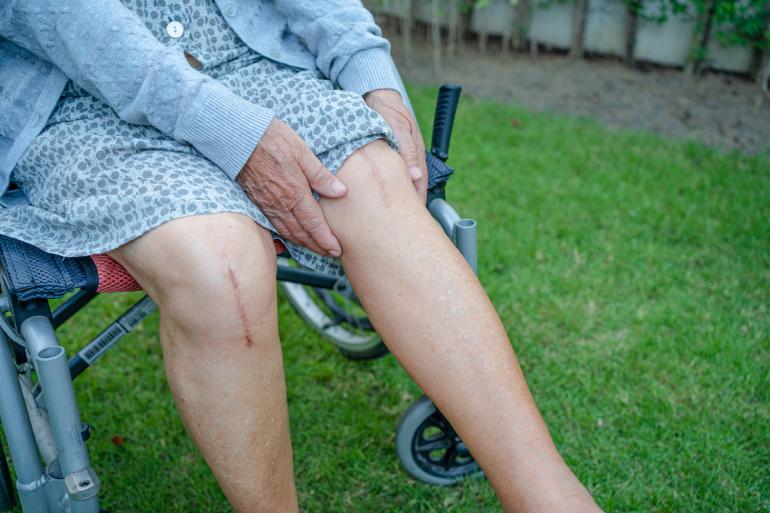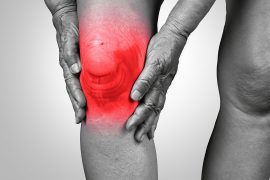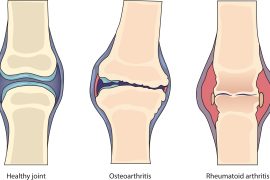Introduction:
Knee replacement surgery is a standard procedure to relieve pain and improve the function of a damaged knee joint. The surgery involves replacing the damaged or worn-out parts of the knee with artificial components. While knee replacement surgery can be life-changing, it is necessary to understand what to expect during recovery and how to manage your life after the procedure.
The First Few Weeks After Surgery:
During the initial few weeks after knee replacement surgery, you will need crutches or a walker to help you move around. It is equally necessary to keep your incision clean and dry and attend all follow-up appointments with your surgeon.
Managing Pain and Discomfort:
Pain and discomfort are common after partial or total knee arthroplasty. However, the same can be managed in ways advised by your doctor. Your doctor will prescribe you pain-relieving medication to help reduce pain and swelling. Ice application to your knee several times a day can also help reduce swelling.
Rehabilitation and Physical Therapy:
Rehabilitation and physical therapy are essential for a successful recovery after partial or total knee replacement. You regain strength and mobility in your knee, reduce the risk of complications, and improve your overall quality of life with physical therapy. Your physical therapist will help you develop a customized rehabilitation plan that includes exercises to improve your range of motion, strength, and balance. These exercises may include:
● Stretching and strengthening exercises for your knee, leg, and hip muscles.
● Balance exercises to improve your stability and coordination.
● Weight-bearing exercises to help you gradually resume normal activities.
● Gait training improves your walking pattern and reduces the risk of falls.
Following your physical therapist’s rehabilitation plan and attending all scheduled therapy sessions is important to ensure the best possible outcome after knee replacement surgery.
Returning to Normal Activities:
The recovery process after knee replacement surgery can take several months, and the length of time you will need to avoid certain activities will depend on the surgery and the speed of your recovery. However, most people can return to normal activities, such as driving, shopping, and light housework, within 4 to 6 weeks after the procedure. More strenuous activities, such as running and jumping, should be avoided for at least 6 to 12 months after knee replacement surgery. Following your surgeon’s guidelines is essential to return to normal activities and not to rush the recovery process. Your physical therapist can help you determine when it is safe to resume these activities.
Maintaining a Healthy Lifestyle:
Maintaining a healthy lifestyle is vital for a successful recovery after knee replacement surgery. Eating a healthy diet, getting enough rest, and avoiding activities that put excessive stress on your knee can help you recover faster and reduce the risk of complications. Staying active and participating in physical therapy can also help you regain strength and mobility in your knee.
Conclusion:
Knee replacement surgery can be life-changing, and the recovery process can be challenging. Still, with the proper support and rehabilitation, you can regain strength and mobility and enjoy a pain-free life. For any queries about recovery after knee replacement surgery, speak with your surgeon or physical therapist. They can provide personalized guidance and support to help you achieve the best possible outcome.
FAQs :
What is the recovery period after knee replacement surgery?
The recovery period for every patient after knee replacement surgery will be different. Still, most people can resume normal activities within 4 to 6 weeks. More strenuous activities, such as running and jumping, should be avoided for at least 6 to 12 months. Your recovery time will depend on the extent of your surgery and the speed of your recovery.
Is physical therapy needed after knee replacement surgery?
Yes, physical therapy is a crucial part of the recovery process after knee replacement surgery to regain strength and mobility in your knee, reduce the risk of complications, and improve your overall quality of life.
How can I manage pain and swelling after knee replacement surgery?
Pain and swelling are common after knee replacement surgery, but there are several things you can do to manage them. The doctor prescribed pain-relieving medication that can help reduce pain and swelling. Ice application several times a day is also recommended to reduce swelling.
How can I maintain a healthy lifestyle after knee replacement surgery?
Maintaining a healthy lifestyle is essential for a successful recovery after knee replacement surgery. Eating a healthy diet, getting enough rest, and avoiding activities that put excessive stress on your knee can help you recover faster and reduce the risk of complications. Staying active and participating in physical therapy can also help you regain strength and mobility in your knee.
Can one resume everyday life after knee replacement?
Yes, most people can live an everyday life after knee replacement surgery. After recovery, many people can resume normal activities, such as driving, shopping, and light housework. However, some restrictions may apply, such as avoiding more strenuous activities like running and jumping, for at least 6 to 12 months after the surgery. The extent of your everyday life after surgery will depend on your recovery and rehabilitation success.
What are the don’ts after knee replacement?
After knee replacement, avoiding activities that stress your knee, such as running and jumping, is essential. Your surgeon or physical therapist will provide specific guidelines on what activities to avoid. You should follow their advice to ensure the best possible outcome after surgery.
What is the commonly experienced problem after knee replacement surgery?
The commonly experienced problem after knee replacement surgery is pain and stiffness in the knee, which is normal. But it can be managed with physical therapy, pain medication, and other treatments. If you experience persistent pain or other symptoms after surgery, speak with your surgeon.
References :
– https://www.ckbhospital.com/blogs/quality-of-life-knee-replacement-surgery/
– https://www.whiterockmedicalcenter.com/newsroom/news/how-does-your-life-change-after-knee-replacement-surgery/
– https://www.healthline.com/health/total-knee-replacement-surgery-daily-life
– https://www.healthline.com/health/total-knee-replacement-surgery/expectations
– https://www.hss.edu/conditions_life-after-knee-replacement





Comments are closed.